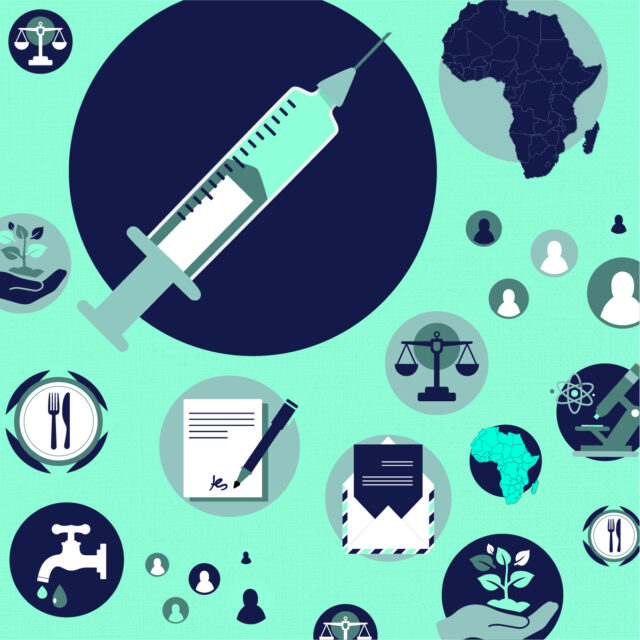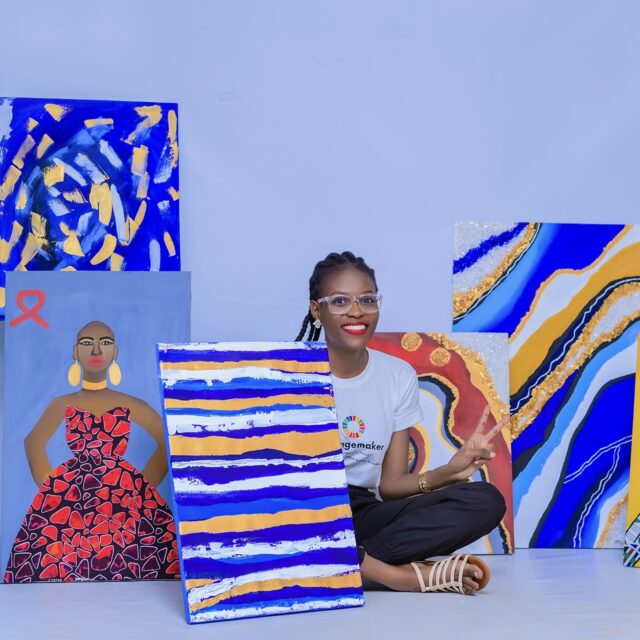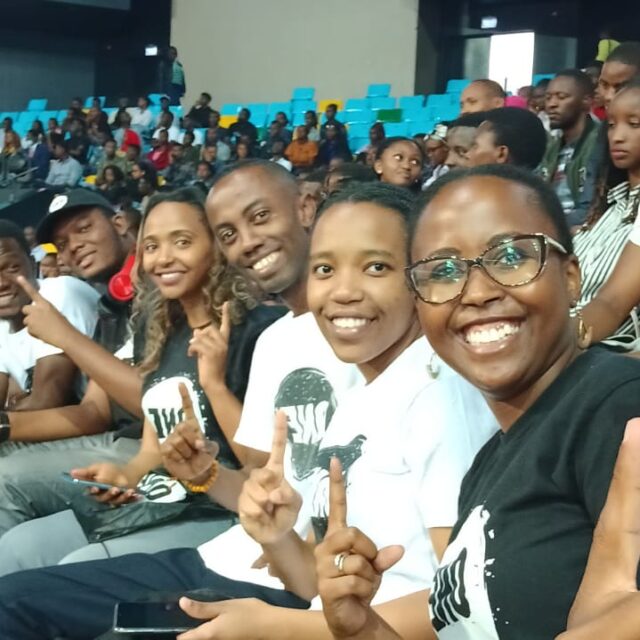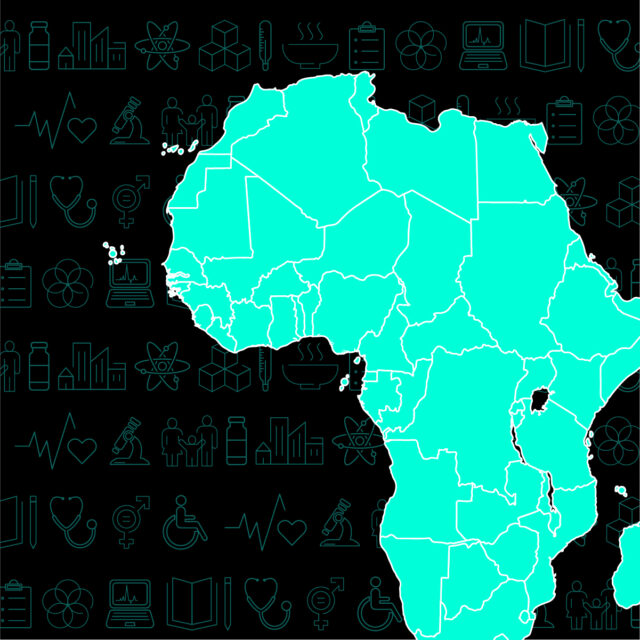Top news
Indian variations: India’s heartbreaking crisis is spilling over to Africa. The ban on export of vaccines from India’s Serum Institute slowed the continent’s vaccine roll out considerably last week. But Kenya, Uganda, and South Africa have strong economic and social ties with India. Last week, two cases of the Indian variant (B.1.617) were found in Uganda. On an average day, eight flights leave Entebbe airport for Nairobi, six for Kigali, and four for Addis Ababa. On Wednesday, Trust reported that Kenya has detected the Indian variant.
“Terrifying”: India’s COVID crisis is shining a spotlight on what could be next for Africa. With upcoming elections and Eid al-Fitr celebrations, WHO’s Matshidiso Moeti fears the worst. All of this is increasing pressure on rich countries to take extraordinary measures. African Union Chair Felix Antoine Tshisekedi Tshilombo will convene a meeting this Saturday to discuss how to prepare for what might happen next. Africa CDC head John Nkengasong has one word: “Terrifying.”
Hot property: US Trade Representative Katherine Tai announced something remarkable: US support for a TRIPs waiver on COVID-related medicines. More than 100 countries support the proposal, first presented by India and South Africa. Nkengasong tweeted “History will remember this decision as a great act of humanity!” New Zealand and France quickly announced their support. All eyes are on the rest of Europe, Canada, and the UK. But we shouldn’t forget that this is just one tool in the toolbox. We still need urgent investments in vaccine manufacturing, dose sharing, and the removal of trade-related barriers, especially restrictions on vaccine raw materials.
Who’s the leader?: ONE’s Vaccine Access Test evaluates how countries and companies are doing on vaccine equity. May’s edition shows that supply will outstrip demand for vaccines in six of the G7 countries by the end of summer (G7 countries have more than 1 billion excess vaccine doses). Key message: progress is too slow. Activists, led by Pandemic Action Network, are now calling for a roadmap to reach global herd immunity.
Trailblazer: 19.1 million COVID-19 vaccine doses have been administered on the African continent (4.78 million second doses) of a total of 36.5 million that have been received. The Seychelles, which has been a trailblazer and fully vaccinated over 60% of its population (mostly using Sinopharm), is bringing back restrictions amid a rise in cases.
A reckoning: Rich countries should beware of a coming reckoning. So said a senior UN diplomat in a conversation with ONE this week. The humanitarian and economic impacts of COVID-19 on poorer countries will be stark, as rich countries open up, their economies rebound, and their citizens start to travel. The geo-political implications could be even starker. The New York Times has more.
A little help from my friends: Sudan has cleared $413 million in arrears to the African Development Bank, with the help of a bridge loan from the UK. This follows support from the US and an offer from France. This will allow sanctions to be lifted and enable the country to access debt relief through the Heavily Indebted Poor Countries Initiative.
Zoom bomb: Kenyan activists stormed an online meeting with IMF head Kristalina Georgieva to protest the IMF’s loan to the country, claiming the government will waste the money. Elsewhere, Tunisia, which owes $7.9 billion in debt service this year, requested a new IMF financing programme, but is not eligible for the G20’s Debt Service Suspension Initiative. Uganda also plans to approach creditors for debt relief.
Copper top: Copper hit its highest price in a decade at $10,000 per tonne, with analysts predicting it could reach $15,000 in coming years. That’s good news for the Democratic Republic of the Congo and Zambia, which have it in abundance. The metal, critical for the green energy transition, could help consolidate these two countries’ shaky fiscal positions. Now is a chance to learn from previous mistakes and use the money wisely on education, healthcare, and infrastructure.
Publish what you lend: The Organisation for Economic Co-operation and Development is kicking off a new debt transparency portal. Born out of Mozambique’s Tuna Bond scandal, this builds on ONE’s work with the International Institute for Finance to push for the private sector’s Voluntary Principles for Debt Transparency. Knowing what a government owes is a critical step in fighting corruption, macro-economic management, and enabling fair debt restructuring. ONE will continue to push for private lenders to disclose.
50:10:60:30: While many think the IMF has done a good job during the crisis, its own analysis shows the needs of low-income countries are much greater ($450 billion in the next five years) than what it has provided. Masood Ahmed of CGD has a proposal for making the most of the Special Drawing Rights allocation: $50 billion in zero interest loans through the IMF’s Poverty Reduction and Growth Trust, $10 billion for vaccines, $60 billion for more creditworthy countries through traditional IMF lending, and $30 billion in liquidity to reduce the cost of countries borrowing from private lenders. In his capacity as AU special envoy, Donald Kaberuka said negotiations on a SDR recycling target for Africa are ongoing.
Boys club: G7 foreign ministers and development ministers met in London this week, the first in-person G7 meeting since the pandemic hit. Twitter was alive with outrage at the photo: a “manel” on the stairs of London’s Lancaster House. Amid strong words on China and Russia, the group did agree to help 40 million girls get an education. Well done to chair Dominic Raab, getting that over the line, while the UK has cut funding to girls education by 40%.
Harvest moon: Cereal harvest conditions on the African continent are favourable, according to cropmonitor.org, with the exception of parts of Kenya and Angola. Harvesting began in Southern Africa and planting of 2021 crops in West Africa, East Africa, and Central Africa began last month. Wheat and corn prices rose significantly in April, reaching $309 a ton and $7.49 a bushel, respectively. Locusts are much less of a worry than they were last year.
The numbers
- 395 million: The number of children who have not gained basic literacy skills by the age of 10 since 2015
- 248,875: COVID vaccine doses administered on Monday in Africa. The rate has picked up after falling to its slowest rate last week
Other reads
- Global NGO Care estimates that for every $1 spent on buying vaccines, another $5 is needed to get them from airports to arms. Of this, $2.50 should fund training, equipping, and supporting health workers, who have a particularly unique currency: trust.
- Carnegie Endowment’s Zainab Usman and David Landry have a new report on economic diversification in Africa. The continent is home to eight of the world’s 15 least economically diversified countries and intra-regional trade sits at 17% (compared to 69% in Europe). A slow pace of progress makes these countries vulnerable to external shocks.



